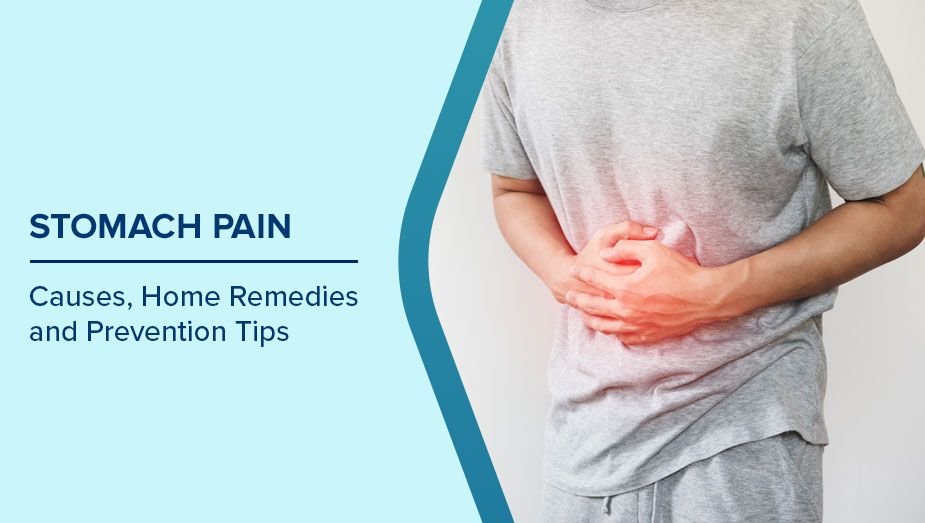Quick Fixes for a Stomach Ache
When you’re searching for a stomach ache cure, often the simplest solution is a bowel movement. Many people experiencing nausea or generalized abdominal pain find relief this way. Before exploring other remedies, try sitting on the toilet for a few minutes, leaning forward with your knees drawn to your chest. This position naturally encourages a bowel movement without undue stress. Remember not to force a bowel movement by straining or pushing, as this can lead to complications like hemorrhoids. If you ever notice blood in your stool or vomit, seek immediate medical attention; these symptoms, known as hematochezia and hematemesis respectively, require professional evaluation.
Visit the bathroom
When you’re searching for a stomach ache cure, often the simplest solution is a bowel movement. Many people experiencing nausea or generalized abdominal pain find this simple stomach ache cure effective. To ease abdominal discomfort, first try sitting on the toilet. Lean forward with your knees drawn to your chest for a few minutes. This position naturally encourages a bowel movement without undue stress, offering a quick stomach ache cure for some.

- Don’t try to force a bowel movement by straining or pushing. Undue force can cause serious complications such as hemorrhoids.
- If you have blood in your stool or vomit, seek immediate medical attention. These symptoms are called hematochezia and hematemesis.
Apply a warm compress to your stomach
Warming your stomach area can relax muscles and reduce tightness or cramps. Place a hot water bottle, microwavable compress, or electric heating blanket over your stomach for several minutes.
- No hot water bottle? Fill a pillowcase or clean sock with rice. Microwave it for a minute or two.
- For example, lie on your back with elevated legs and feet. Or, crunch your knees to your chest and rock gently. Elevating your feet will reduce pressure on the abdominal region, release pent-up gas, and relieve discomfort.
Let yourself vomit
If you’re seriously nauseated, your body might be telling you that it needs to vomit. This unpleasant action may seem like the worst-case scenario for your abdominal discomfort, but in fact, it’s your body’s way of expelling ingested bacteria, viruses, or food that are causing irritation. Sometimes, vomiting serves as a natural stomach ache cure. Just be sure to visit the doctor if you continue to vomit over several days, as this could indicate a serious underlying condition requiring more than a simple stomach ache cure.
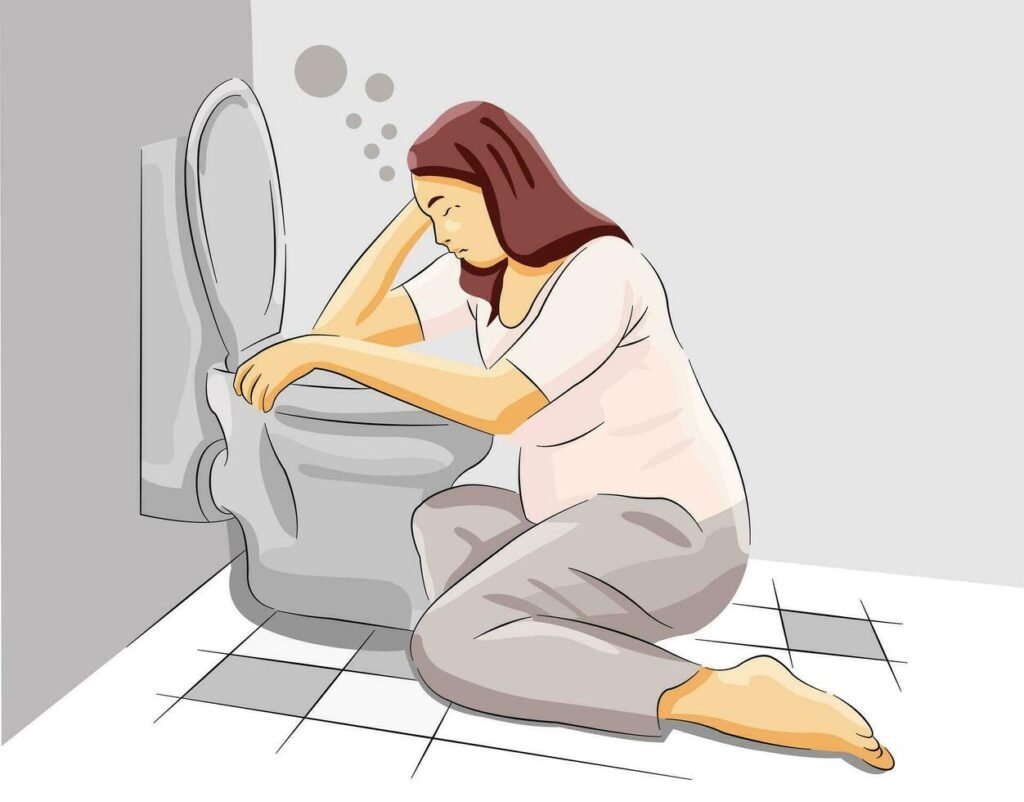
- If you’re nauseated but can’t vomit, try nibbling on some soda crackers.
- Vomiting can cause dehydration quickly, so drink electrolyte-supplemented sports drinks if you’re purging more than once. These replenish the sodium and potassium in your body which it needs in order to fight illness.
Take a hot bath

Immersing yourself in warm water will increase your circulation and relax your muscles. This can mitigate abdominal pain and also help relieve any stress you’re experiencing. Stay in the bath for at least 15-20 minutes and add one or two cups of Epsom salt to help draw out inflammation.
Massage your stomach
Stomach cramping may be caused by muscle constriction. You can lessen this by giving yourself a gentle massage and applying light pressure to different areas of your stomach and back. Focus on parts that feel particularly sore but don’t overdo it or push or rub too hard.
- While massaging, focus on breathing in through your nose and out through your mouth. Deep breathing can help relax your muscles and distract you from the pain.
OTC Medications for a Stomach Ache Cure
There are many over-the-counter medications available for run-of-the-mill nausea, indigestion, and cramping, offering a quick stomach ache cure for many. You don’t want to rely on these medications on a consistent basis, but moderate use is generally safe and effective as a temporary stomach ache cure. Always follow dosage instructions carefully and ask your pharmacist for additional tips or warnings for the specific medicine you’re thinking of purchasing to ensure it’s the right stomach ache cure for you.
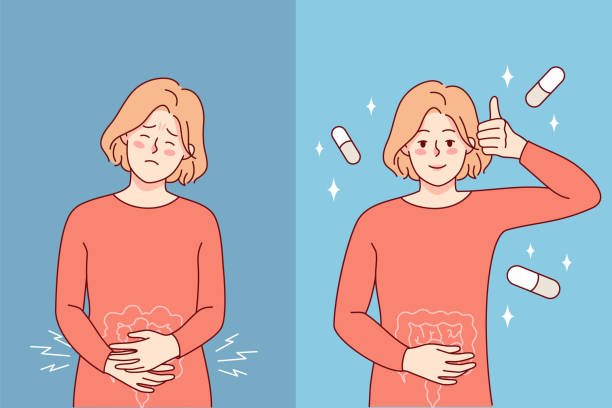
- For indigestion, look for medications containing calcium carbonate, which will coat the stomach lining and reduce pain and nausea with little to no side effects.
- If pain persists after taking bismuth, try a medication with a low dose of acetaminophen rather than aspirin or ibuprofen. Just be sure not to overuse this drug, as it can eventually lead to liver damage.
Taking Home Remedies
Ingest prunes or other high-fiber foods. A common cause of stomach ache is constipation—your body needs to move its bowels, but something is blocking or impeding this movement. Ease constipation by eating or drinking fiber-rich items such as prunes, bran, or broccoli. Prunes are particularly powerful as they contain the natural laxative sorbitol, as well as packing a mean, fiber-full punch.
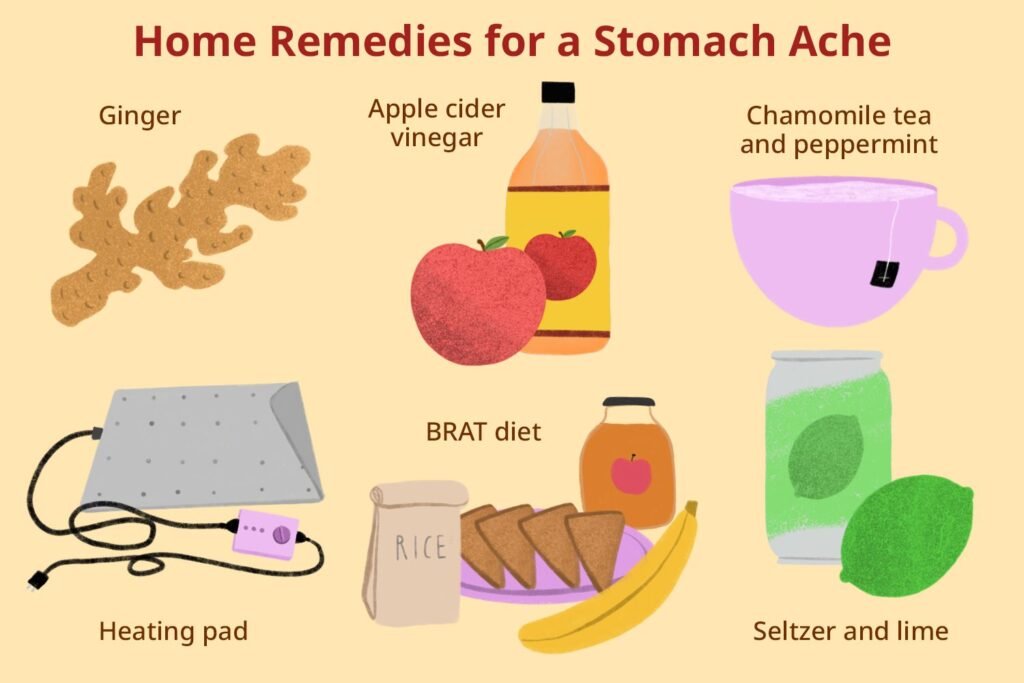
- If constipation persists after consuming fiber-rich foods and drinks, try a mild laxative such as a water-soluble powder or sennoside-containing tea.
- A cup of coffee can also stimulate your digestive tract muscles and cause a bowel movement. Don’t gulp it down all day long, though. Coffee is a natural diuretic, so too much of it can cause dehydration and exacerbate constipation.
- Prune juice is known to help stimulate the bowels and get them moving. Drink a small glass in the morning, and a small glass in the evening to help with constipation.
Drink peppermint, chamomile, or ginger tea. Studies have shown that these three herbs can help mitigate nausea and general abdominal discomfort. Ginger regulates digestion, while mint and chamomile can be particularly soothing to cramped muscles.
- You can also chew on boiled mint leaves or drink ginger water rather than drinking teas made from these herbs. To make ginger water, toss a few chunks of ginger in hot water, steep, and strain.
Chronic Indigestion, Heartburn & Acid Reflux: Effective Treatments
Watch what you eat. If you experience indigestion or heartburn frequently, focus on treating the cause of your indigestion rather than simply addressing its symptoms. Start by monitoring your consumption and meal habits. Seemingly small habits such as eating too rapidly, taking large mouthfuls, or overeating with excessive portions can aggravate your indigestion.
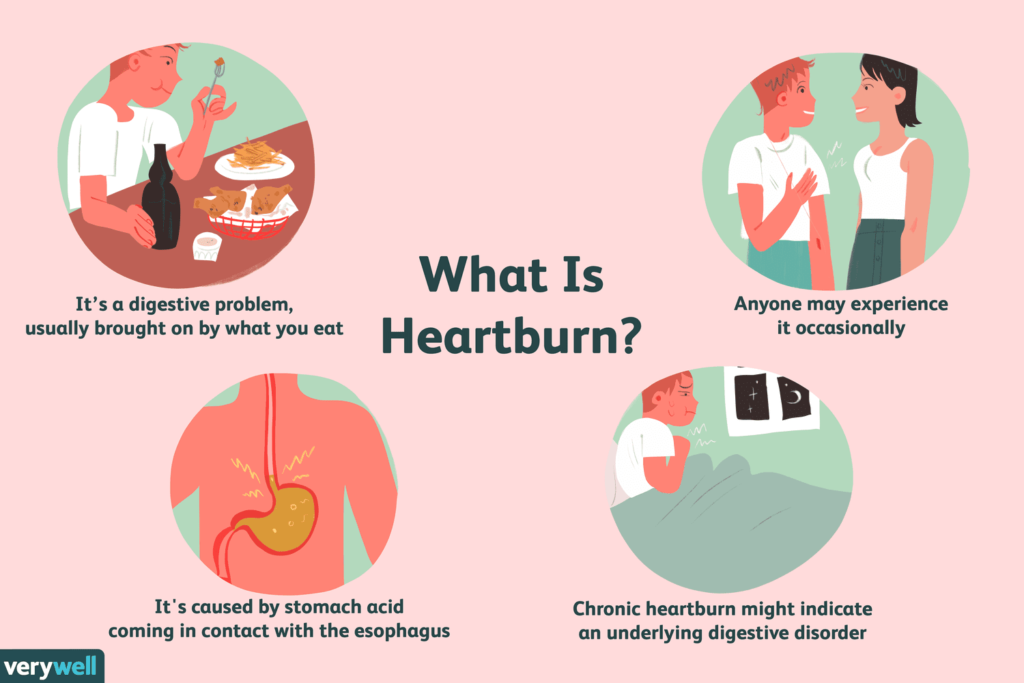
- Once you’ve noticed your bad mealtime habits, correct them by eating smaller meals over a longer period of time. Eating slowly allows your stomach more time to digest and smaller portions lessen its workload.
- Problems with the stomach after eating is called non-ulcer dyspepsia, which is also known as indigestion.
Avoid oily and spicy foods. Indigestion is frequently caused by consuming hard-to-digest foods which cause pain and increase acid production. One of the easiest ways to curb indigestion is figuring out which foods trigger dyspeptic symptoms and eliminating them from your diet.
- Instead, opt for bland foods such as oatmeal, broths, toast, applesauce, crackers, and rice. These items are easy to digest and thus won’t put undue stress on your digestive system.
Wear clothes that are loose around your waistline. This can seem like a small consideration, but your clothes can have a big impact on indigestion and acid reflux. Super tight waists on pants or skirts can dig into your abdomen and put pressure on the lower esophageal sphincter, impeding regular digestion and causing stomach acids to rise up your esophagus.
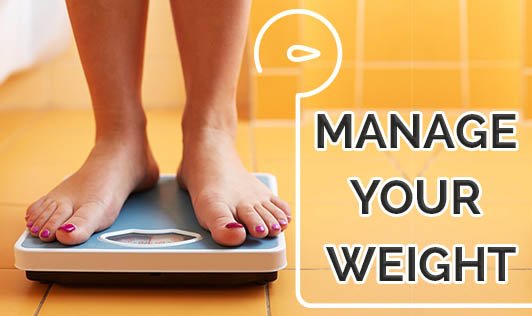
- This doesn’t mean you have to ditch your favorite skinny jeans. Just make sure you slip into some looser fitting clothing before digging into a big meal.
- Although indigestion is thought to be the cause of overactive stomach acid, it can also be the result of insufficient stomach acid. Ask your doctor if you think this could be your issue, and try a hydrochloric acid supplement if they recommend it.
- No matter which supplement you decide to try, be sure to follow the dosage directions and consult a doctor if you experience any side effects.
Add a probiotic to your diet. Probiotics are good bacteria that grow in your stomach and aid digestion. Studies have shown that taking probiotics can improve certain chronic digestive problems such as irritable bowel syndrome and infectious diarrhea. Eating yogurt and other cultured milk products on a daily basis can boost your probiotic levels, but make sure that you check the label and purchase products containing live cultures.
Check your consumption of nitrates and anti-inflammatory drugs. Many commonly prescribed and consumed drugs can cause indigestion or heartburn, so check your medicine cabinet to see if you’re taking anything that could be contributing to your problem. Don’t just quit important meds cold turkey, though. Ask your doctor if you can stop using the drugs and how you can substitute for them.
- Nitrates are often used for heart disease as they widen blood vessels, and common non-steroidal anti-inflammatory drugs such as aspirin and ibuprofen are typically used for addressing pain.
Rest after eating. Take a break before doing any physical activity in order to let your food digest. If you exercise too soon after eating, your body interrupts any digestion it was doing so that it can provide blood and energy to your active muscles and lungs. This interruption delays digestion and can cause a stomach ache. Sit upright or lounge for up to an hour after eating your meal.
- If you’ve just eaten a large meal with a lot of fat in it, you may need to wait two to three hours before vigorous exercise.
Stomach Ache Prevention: Avoiding Future Discomfort
Stomach aches can be disruptive and uncomfortable, but the good news is that many of them are preventable with the right habits and lifestyle choices. By understanding the common causes and taking proactive steps, you can reduce the risk of recurring digestive issues.
Mindful Eating Habits
One of the primary contributors to stomach aches is poor eating behavior. Eating too quickly, overeating, or consuming large meals late at night can overwhelm your digestive system. To prevent discomfort, focus on eating slowly, chewing your food thoroughly, and opting for smaller, more frequent meals. It’s also important to avoid lying down immediately after eating, as this can lead to indigestion and acid reflux.
Incorporating fiber-rich foods like fruits, vegetables, and whole grains can support healthy digestion and prevent constipation, another common cause of stomach pain. Equally, staying hydrated helps your digestive system process food efficiently and reduces the likelihood of cramping and bloating.
Avoiding Trigger Foods and Stress

Many stomach issues stem from the foods we eat and the stress we experience daily. Understanding how these factors impact your digestive system is crucial for prevention and long-term relief.
Identify and Eliminate Problematic Foods
Certain foods are known to irritate the digestive tract or cause inflammation. Spicy dishes, fatty meals, carbonated beverages, caffeine, and alcohol are common offenders. These can lead to bloating, acid reflux, or general discomfort, especially if consumed in large quantities or on an empty stomach.
Individuals with food sensitivities or intolerances — such as lactose or gluten intolerance — must be particularly mindful. Keeping a food diary can help identify which foods consistently cause issues. By tracking meals and symptoms, patterns emerge that allow you to make informed dietary changes.
Embrace a Gut-Friendly Diet
A balanced diet that supports gut health includes fiber-rich foods, probiotics, and plenty of water. Fiber helps regulate bowel movements, while probiotics — found in yogurt, kefir, and fermented foods — promote healthy gut flora. Reducing processed foods and added sugars can also alleviate digestive distress over time.
Eating smaller, well-balanced meals at regular intervals, rather than overloading your digestive system with heavy meals, is key to preventing stomach aches.
Manage Stress to Protect Your Gut
Stress affects far more than just your mental health—it has a powerful impact on your digestive system. Chronic stress can contribute to symptoms such as indigestion, nausea, bloating, and even more serious issues like irritable bowel syndrome (IBS). Understanding and managing this connection is essential for maintaining gut health.
The Gut-Brain Connection
The digestive system is closely linked to the brain through a network of nerves and hormones often referred to as the “gut-brain axis.” When you’re under stress, your brain signals the gut to slow digestion, produce excess acid, or alter its natural rhythm. These changes can lead to discomfort or exacerbate existing conditions like acid reflux or constipation.
You may also experience a loss of appetite, or conversely, cravings for unhealthy comfort foods, both of which can disrupt normal digestive functioning. Recognizing the physiological connection between emotional and digestive health is the first step in protecting your gut.
Effective Stress Management Techniques
To minimize stress-induced digestive issues, it’s important to incorporate daily habits that promote mental well-being. Regular physical activity such as walking, yoga, or swimming not only reduces stress hormones but also improves digestion. Deep breathing exercises and mindfulness meditation can calm the nervous system and ease tension in the gut.
Consider scheduling time each day to relax without screens—whether through reading, listening to music, or spending time outdoors. Social connection is another powerful stress reliever; talking with friends or loved ones can provide emotional support and reduce anxiety levels.
Prioritize Rest and Routine
Getting enough quality rest and maintaining a consistent daily schedule are essential for good digestive health. Disruptions in sleep or routine can throw off your body’s natural rhythms, impacting everything from metabolism to bowel function.
The Importance of Quality Sleep
Sleep is when your body carries out many restorative functions, including digestion and hormonal balance. When you don’t get enough sleep, your body produces more cortisol, the stress hormone. Elevated cortisol levels can lead to inflammation in the gut, slow digestion, and even exacerbate conditions like acid reflux or irritable bowel syndrome (IBS).
Aim for 7–9 hours of uninterrupted sleep each night. Creating a calming bedtime routine—such as turning off screens an hour before bed, lowering room lights, or reading—can signal to your body that it’s time to wind down. A dark, quiet, and cool sleeping environment can also enhance the quality of your sleep.
Maintain a Consistent Routine
Just like sleep, your digestive system benefits from routine. Eating meals at regular times each day helps regulate bowel movements and keeps your metabolism functioning smoothly. Skipping meals, overeating late at night, or frequently changing meal times can confuse your digestive system and contribute to discomfort.
Try to wake up, eat, and go to sleep around the same time each day. This consistency helps synchronize your body’s internal clock, also known as the circadian rhythm, which plays a crucial role in digestion.
Small Changes, Big Impact
Even modest improvements in your sleep and daily routine can lead to noticeable changes in how your digestive system feels and functions. By prioritizing rest and structure, you set the foundation for long-term stomach health and overall well-being.
Sleep is a critical part of stress regulation. Poor sleep can increase cortisol levels (the stress hormone), which negatively affects digestion. Aim for 7–9 hours of restful sleep per night, and try to maintain a consistent bedtime and wake-up routine.
By taking these proactive steps to manage stress, you support not only your emotional health but also the proper functioning of your digestive system.
Stress doesn’t just affect your mind; it has a direct impact on your stomach. Chronic stress can lead to digestive problems like indigestion, nausea, or even irritable bowel syndrome (IBS). The gut-brain connection means emotional distress can trigger physical symptoms.
Certain foods and beverages are known to trigger stomach aches, especially for those with sensitivities. Common culprits include spicy foods, caffeine, alcohol, and high-fat meals. Keeping a food diary can help you identify specific triggers and eliminate or reduce them from your diet.
Stress is another often-overlooked cause of stomach discomfort. Chronic stress can negatively impact gut health, leading to conditions such as irritable bowel syndrome (IBS). Managing stress through exercise, mindfulness techniques, or therapy can significantly reduce digestive issues. Getting enough sleep and maintaining a regular schedule also supports a healthier gut.
By making these lifestyle adjustments and being attentive to your body’s signals, you can effectively minimize the chances of experiencing future stomach aches.
Manage stress through stretching and meditation. Stomach problems including nausea and indigestion are more common if you experience high levels of stress. In order to lower your stress, try stretching slowly and meditating. These measures can all relax your body and mind while reducing your odds of future stomach pain.

- Recent studies suggest that deep breathing can also alleviate mild heartburn. Unlike most preventative medications, breathing exercises carry no unwanted side-effects, so there’s no downside to trying it out next time you experience a bit of heartburn!
Exercise regularly. Frequent exercise boosts your metabolism and helps prevent constipation. Over a long period of time, your exercise regimen can even strengthen your digestive tract, making it more efficient and consistent at removing waste and clearing its bowels.

- If you take up long-distance running, you might find yourself more prone to bouts of diarrhea due to the sustained jarring impact and decreased blood flow to your bowels. You can limit these adverse side-effects by avoiding caffeine and sugar substitutes before setting off on a run.
Get plenty of rest. If you’re fighting a stomach virus, your body needs to rest and conserve its resources in order to fight it. If you’re simply suffering from acid reflux, sleep deprivation can make the problem worse by increasing the time that your esophagus is exposed to acid.

- If your stomach ache is keeping you up at night, ask your doctor what kind of medication you can take to promote sleep.
